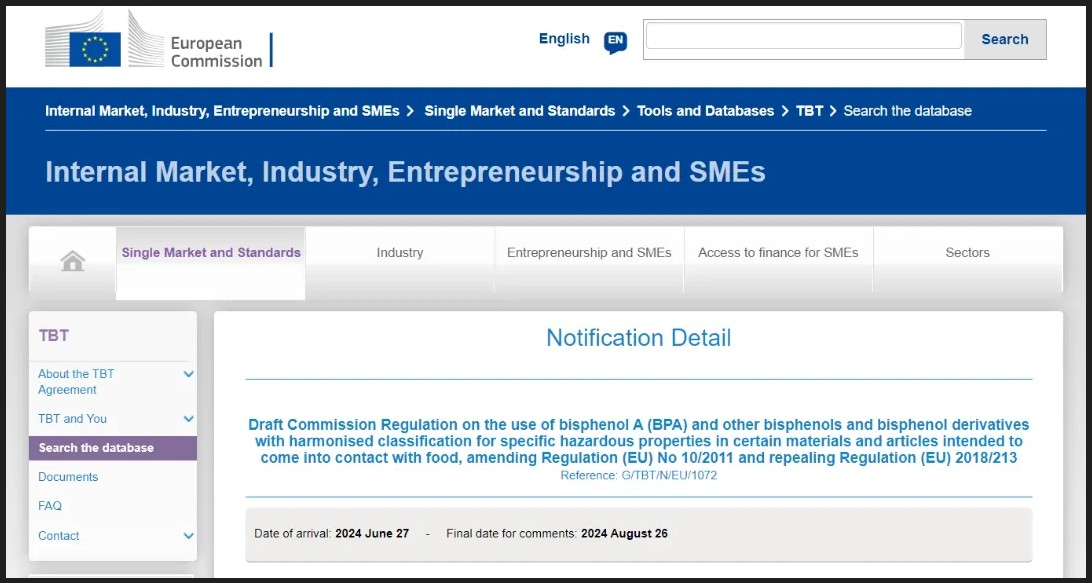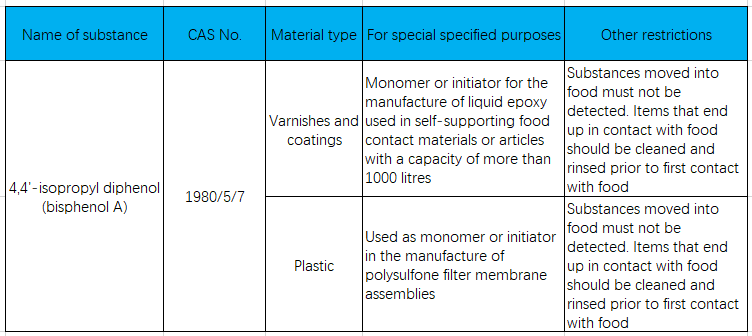



On 10 July, the European Union informed the World Trade Organization (WTO) of a draft 2024 prohibiting the use of substances related to bisphenol A (BPA, Cas No. 80-05-7) in certain food contact materials and products.

The regulation has specific requirements for BPA as well as salts and other bisphenol substances, as well as other harmful bisphenol and bisphenol derivatives. Harmful bisphenol and bisphenol derivatives refer to bisphenol substances or bisphenol derivatives listed in Annex VI, Part 3 of (EC)1272/2008. The draft will replace and repeal the current (EU)2018/213 regulation on BPA requirements and amend the Food Contact Plastics Regulation (EU-RNo- No 10/2011
BPA ban exemptions
The draft regulations make it clear that, except for the purposes specified in the following two special provisions, bPA and its salts are prohibited in the production of adhesives, rubber, plastics, Ion-exchange resin, printing inks, silicone, varnishes and coatings for food contact.

The use of harmful bisphenol and bisphenol derivatives other than BPA in the production or marketing of food contact materials and products is also prohibited, except where an application for exemption is made to an official of the European Union. No BPA residue shall be detected in the production of food contact materials and products where other bisphenol substances or bisphenol derivatives are used in accordance with the applicable regulations.
Revision of EU plastics regulations
The draft regulations are no. 10/2011 introduced a new amendment to remove substances 151(BPA) and 154(BPS) from the regulatory list. When the draft goes into effect, neither substance will be allowed to be used in plastics. The regulation will replace and repeal the regulation (EU)2018/213. The law is scheduled to be adopted and 2024 in November and is expected to take effect 20 days after its release.
The regulation will replace and repeal the regulation (EU)2018/213. The law is scheduled to be adopted and 2024 in November and is expected to take effect 20 days after its release.